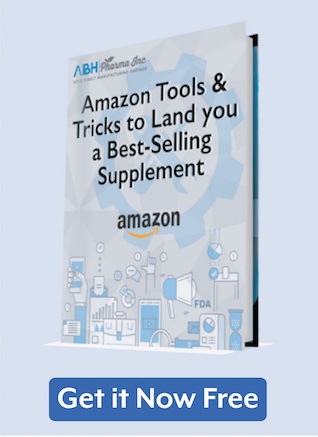The expanding market for natural remedies and herbal supplements is set to reach over $100 billion by the year 2017, and $300 billion by 2022, according to a study from Global Industry Analysts. This makes it a better time than ever tostart a supplement company.
This exponential growth of nutraceutical manufacturing is being driven by the general rise in the average age of Western developed nations. Education about nutrition is also more accessible.
Dietary supplements are playing an increasing role in the market for nutrition since the benchmark for quality standards in the industry were solidified through the Current Good Manufacturing Practices set by the Food and Drug Administration for dietary supplements.
With mainstream acceptance of the viability of supplements as well as the implementation of the standard, the scene was set for a massive uptick in the health and nutrition economy. Consumers followed suit, rewarding the industry even during the economic downturn of 2008 with steady growth.
Some analysts say that the dearth of resources actually helped to spur the movement towards a more natural and low cost lifestyle.
Widespread Marketing and Distribution
Consumers may now viably select their daily nutraceutics from a worldwide menu.
In previous generations, the technology did not exist that could distribute fruits naturally across the world, much less extract from them the active ingredients needed to create more potent supplements.
In the modern world, not only do production and distribution companies have the ability to take the best aspects of superfoods from different continents, but they can also market these products economically, increasing the reach of nutrition specialists and the risks they can take in research and development.
Unlike previous generations of Western pharmaceuticals and dietary supplements, the majority of herbal supplements in the United States and Europe is becoming overhwelmingly nutraceutical in most aspects.
Those that are not are rapidly changing to fit the new mold. As the markets for the US scramble to keep up with emerging health economies in India and Brazil, you can expect the strict regulations that are slowing down the process of integration into that huge market to fall.
China and India are currently leading the way in terms of the herbal product segment, with multi-herbs dominating the sector.
Soy products are coming in a close second, and they are expected to grow even faster as Western regulations fall because of the familiarity of that market with the product.
Women and the Rise of Nutritional Supplement Industry Trends
The number one consumer group for nutraceuticals has always been middle aged women, according to Nutraceuticals World. As these women find more economic freedom than ever in Western countries, analysts expect the market for nutraceuticals to grow, perhaps even past expectations.
Middle aged women overwhelmingly are the purchasers for themselves and for family when it comes to health related products.
Middle aged women are also responding to a cultural shift in the dynamic of Western media towards healthy living, preventive health care options and specifically supplementation.
For instance, the market for fish oil, especially those products labeled as "omega 3" has risen exponentially over the past five years.
This is the result of a cultural shift towards healthy eating and away from nutrition deficient convenience meals. Marketers for omega 3 supplements showcase themselves as the only safe option for achieving the proper amount of the fatty acid in the diet.
Perhaps unsurprisingly, products that advertise being free of mercury are experiencing disproportionate success.
All Natural Nutraceutical Products vs. the Traditional Synthetic Supplement Market
During the dual housing and banking crises of 2008, many people began to view natural supplements as a low cost alternative to medication, which was becoming increasingly inexpensive.
These consumers began to watch closely for synthetic elements and reject supplements that were perceived or found to be less natural. This habit continues into the current economy.
Omega-3s, probiotics, multivitamins and herbal extracts labeled as natural have experienced outsized growth in the past nine years, and the trend is growing.
With the current health plan of the United States embroiled in political uncertainty, people are turning even more to nutraceutics. People are also turning to multi-ingredient supplements that address specific conditions instead of single ingredient products.
Combination nutraceuticals are expected to perform exceedingly well in this environment.
How to Participate in the New Economy
All signs of success in the modern nutraceutical industry point to keeping research and development wide and distribution narrow.
First and foremost, it is absolutely essential to do business primarily with manufacturers and producers with a respected brand in the industry.
Consumers are becoming experts on quality, they will read your labels, and there is plenty of competition to distract their attention.
Participation in this growing market relies upon a solid communications strategy that advertises a specific health benefit to the target audience.
Although there are opportunities in emerging markets such as China or more established markets such as the United States, there are cultural differences that may keep you from taking advantage of all of these markets at once.
Find the territory that most falls in line with the branding of your company and serve that audience products that speak directly to their health needs.
Although you may be tempted to reach out to every territory at once via the Internet, remember that the major search engines reward localization rather than a wide net strategy. As you gain traction in a local area, your listings will naturally be provided to outside territories organically.
This reduces the amount of money that you have to spend on online marketing, and your retail brand becomes more quickly established because you did not try to push it on an audience – they discovered it themselves.
At the same time, you should endeavor to experiment with exotic super foods and multi-ingredient packages that serve your audience.
Authenticity is primary when it comes to nutraceuticals, but as long as people trust your retail brand, they are willing to give you a bit of room to experiment with the products that you stock. As a matter of fact, they tend to appreciate having a choice of many different types of products from around the world, as long as those products are serving the needs they are most concerned with.
In short, quality and authenticity will make you the best supplement supplier and give you your piece of the fast rising nutraceuticals market. If you create a name for yourself in this relatively early stage, you have ample opportunity in the future to expand as the market continues to introduce itself into new territories and populations.







